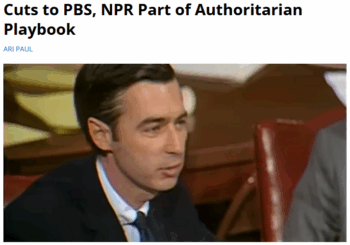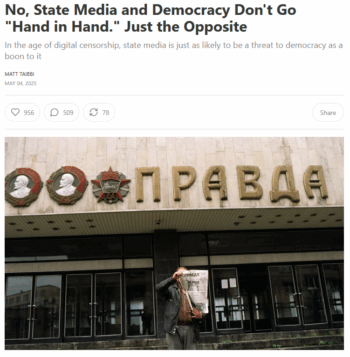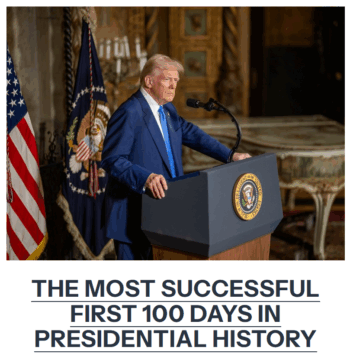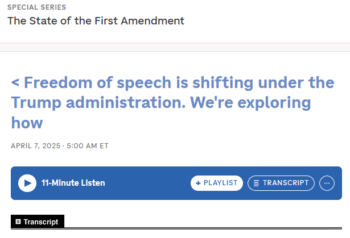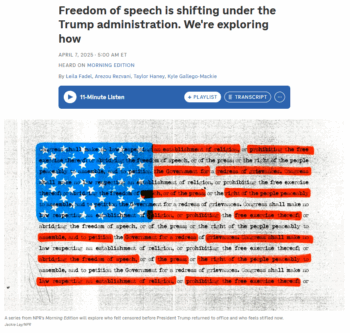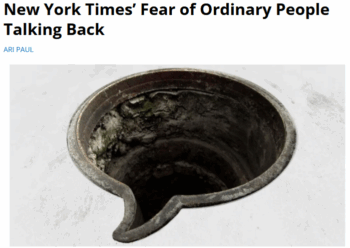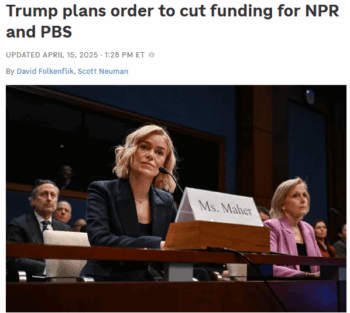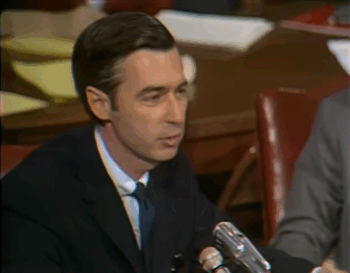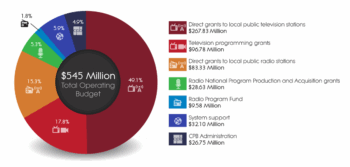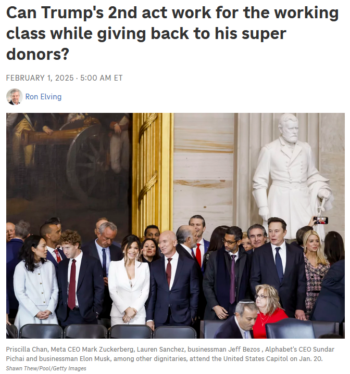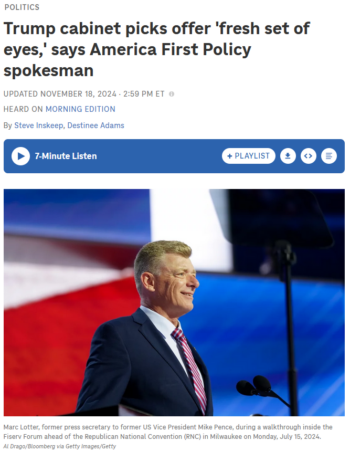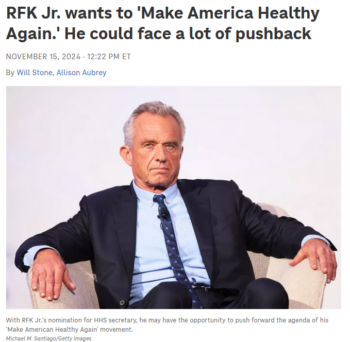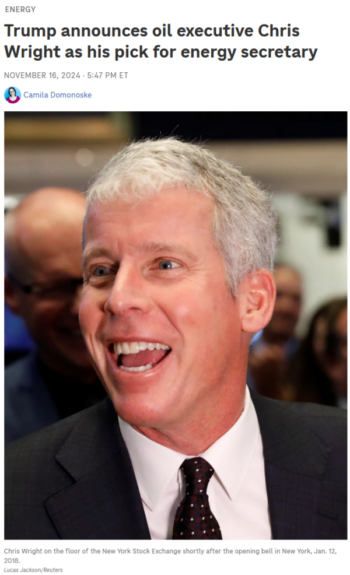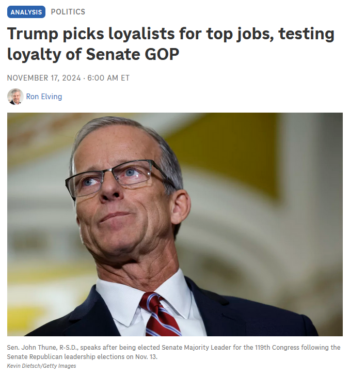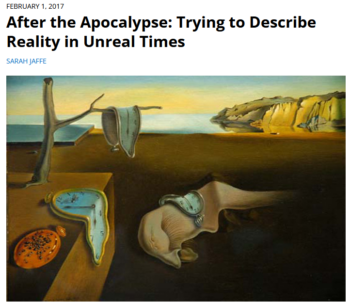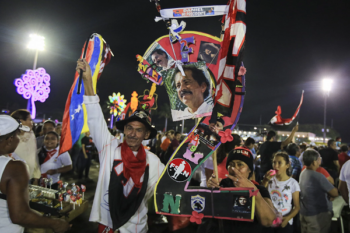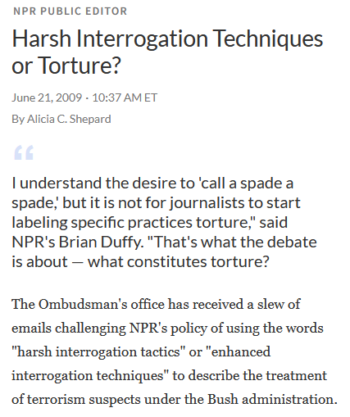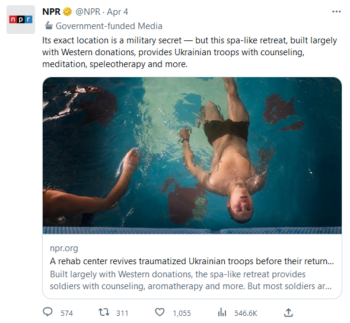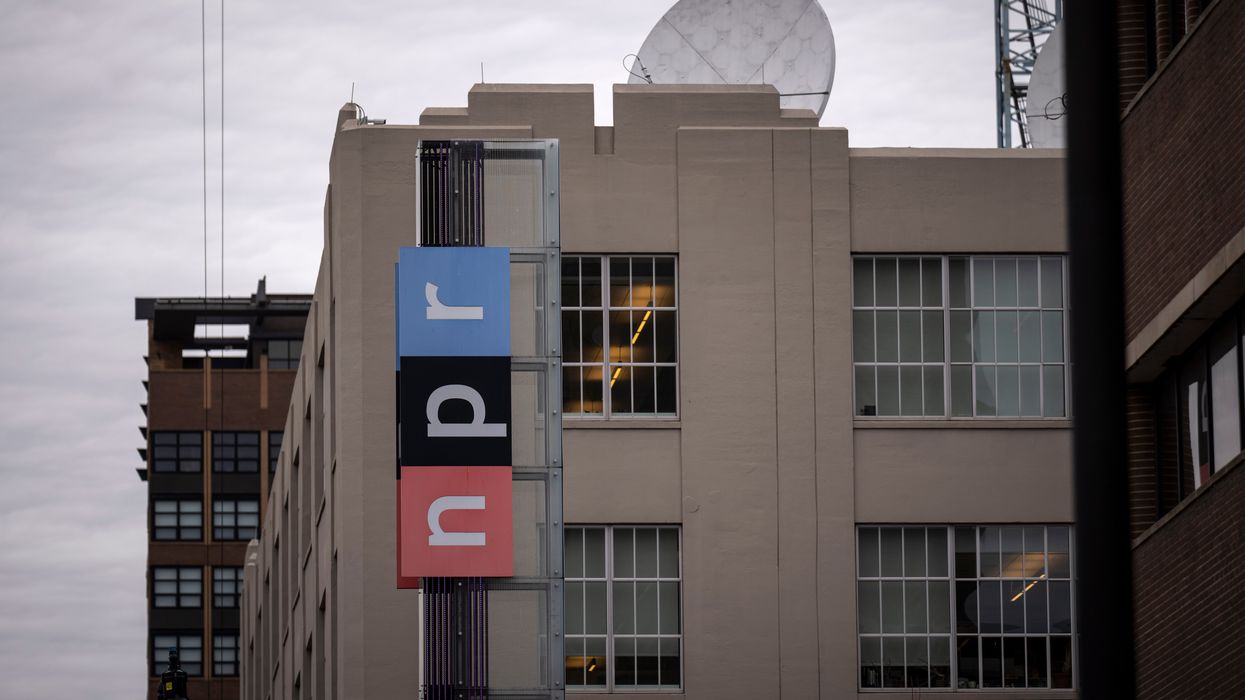NPR ran several stories on Afghanistan to mark the anniversary of the August 2021 US withdrawal, even sending host Steve Inskeep to the country to produce a series of pieces. His visit happened to coincide with Biden’s claimed assassination of Ayman al-Zawahiri; Inskeep says that he and his team were staying in close proximity to the Al Qaeda leader.
With the anniversary and assassination providing a renewed focus on Afghanistan, NPR could have used this opportunity to call attention to the US policy of starving Afghanistan by restricting its international trade activity and seizing its central banking reserves. Instead, it briefly mentioned the catastrophe only one time, devoting a mere 30 seconds to it over two weeks. The reserve theft was mentioned once as well, and for less than 10 seconds.
Over the course of the series, between August 5 and August 19, 2022, NPR‘s two flagship shows, Morning Edition and All Things Considered, aired 18 Afghanistan segments, amounting to some 114 minutes of coverage:
- We Visited a Taliban Leader’s Compound to Examine His Vision for Afghanistan (Morning Edition, 8/5/22; 11 minutes)
- Ackerman’s ‘Fifth Act’ Focuses on the Final Week of US Involvement in Afghanistan (Morning Edition, 8/5/22; 7 minutes)
- Kabul’s Fall to the Taliban, One Year Later (All Things Considered, 8/8/22; 8 minutes)
- Hamid Karzai Stays On in Afghanistan—Hoping for the Best, but Unable to Leave (Morning Edition, 8/8/22; 8 minutes)
- Inside a TV News Station Determined to Report Facts in the Taliban’s Afghanistan (All Things Considered, 8/8/22; 7 minutes)
- In Afghanistan, Why Are Some Women Permitted to Work While Others Are Not? (Morning Edition, 8/8/22; 6 minutes)
- A US Marine’s View at the Kabul Airport When the Taliban Took Over (All Things Considered, 8/10/22; 8 minutes)
- A Marine Who Helped Lead Afghanistan Evacuations Reflects on Those Left Behind (All Things Considered, 8/11/22; 8 minutes)
- What Remains of the American University of Afghanistan? (Morning Edition, 8/11/22; 4 minutes)
- After Decades of War, an Afghan Village Mourns Its Losses (All Things Considered, 8/12/22; 4 minutes)
- Remembering the Day the Taliban Took Control of Afghanistan (All Things Considered, 8/14/22; 5 minutes)
- Biden’s Approval Ratings Haven’t Recovered Since the US Withdrawal in Afghanistan (All Things Considered, 8/15/22; 4 minutes)
- After a Year of Taliban Rule, Many Afghans Are Struggling to Survive (All Things Considered, 8/15/22; 5 minutes)
- What did Afghans Gain—and Lose—in a Region That Supported the Taliban? (Morning Edition, 8/15/22; 7 minutes)
- A Year After the Taliban Seized Power, What Is Life Like in Afghanistan Now? (Morning Edition, 8/15/22; 4 minutes)
- An Afghan Opposition Leader Builds on His Father’s Efforts to Oust the Taliban (Morning Edition, 8/17/22; 7 minutes)
- A Year Later, Former Afghanistan Education Minister Reflects on Her Country (All Things Considered, 8/18/22; 8 minutes)
- Canada Is Criticized for Not Getting More Endangered Afghans Into the Country (Morning Edition, 8/19/22; 3 minutes)
NPR focused almost no attention on the hunger crisis and the US role in exacerbating it. The series instead focused on a question that’s important, but far less relevant to NPR‘s US audience: “Who is included in the New Afghanistan?”
FAIR (8/9/22) has already criticized the initial piece (8/5/22) for the historical framing NPR used to contextualize the current situation in Afghanistan. Host Steve Inskeep misleadingly said that the Taliban refused to turn over Al Qaeda’s Osama Bin Laden after 9/11, and this “led to the US attack.” In reality, the Taliban repeatedly offered to put Bin Laden on trial or give him up to a third country both before and after the attacks.
‘Tantamount to mass murder’
Afghanistan is currently enduring misery under the onslaught of drought, famine and economic collapse: 95% of Afghans don’t have enough to eat, while acute hunger has spread to half the population, an increase of 65% since last July. Conditions are so dire that some are being forced to boil grass to sustain themselves.
Throughout NPR’s series, which centers mostly on the “inclusivity” question, the dire toll on Afghan civilians was an afterthought. None of the above stats were mentioned on air, and there was little attempt to connect the Afghan plight to deliberate US policy.

Intercept (2/11/22): “The decision puts Biden on track to cause more death and destruction in Afghanistan than was caused by the 20 years of war that he ended.”
The omission is glaring, given the enormity of the Afghan crisis and the direct role the US plays in making it worse. The Intercept has covered the toll of sanctions over the years, even calling Biden’s policy “tantamount to mass murder” (2/11/22). This disaster is actually recognized by some of the establishment press. Even the New York Times editorial board (1/19/22) issued a plea to “let innocent Afghans have their money.” But this central fact fails to occupy central attention.
These events were set in motion almost immediately after the US withdrawal. Before its collapse, the US-backed Afghan government relied on foreign aid for most of its annual budget. After the overthrow, those funds were no longer available, since the US refused to deal with the Taliban.
While numerous human rights organizations called for an increased flow of aid, and warned of an impending humanitarian crisis, US policymakers decided to exacerbate the situation by freezing the Afghan’s central bank reserves, hamstringing the Afghan banking system, and thus the economy. $9 billion of reserves were inaccessible to the Taliban, an amount that equates to half of the entire economy’s GDP. As a result, the new government was unable to fund critical governmental infrastructure, including salaries for nurses and teachers.
At the US behest, the IMF froze about a half billion dollars in funds designated to help poor countries during the pandemic. Relatives living outside the country have been able to send far less money, as the traditional banking avenues have collapsed—leaving MoneyGram and Western Union as some of the only viable alternatives. Both services had temporarily halted services upon the Afghan government collapse. Since the Taliban is designated as an enemy of the US, many companies still avoid doing business in Afghanistan, further compounding the collapse.
Shortly after the withdrawal, the media often recognized these increasingly horrid conditions, but either decoupled them from US policy, or framed the oncoming crisis as “leverage” for the West to reshape the Afghan government. The “hunger crisis,” wrote the Associated Press (9/1/21), “give[s] Western nations leverage as they push the group to fulfill a pledge to allow free travel, form an inclusive government and guarantee women’s rights.” Others took a similar line (New York Times, 9/1/21; Wall Street Journal, 8/23/21).
The economy has since fallen into a tailspin. The humanitarian aid the US still sends to Afghanistan does little to stop the economic free fall. By March, aid agencies were warning of “total collapse” if the economy wasn’t resuscitated, a prospect that has only grown more likely over the last few months.
‘A new US-backed free Afghanistan’

Morning Edition‘s profile (8/8/22) of former Afghan President Hamid Karzai omits details found in a Washington Post report (12/9/19)—such as that he “won reelection after cronies stuffed thousands of ballot boxes,” and that “the CIA had delivered bags of cash to his office for years.”
The only mention of the reserve theft was during Inskeep’s interview with former Afghan President Hamid Karzai (Morning Edition, 8/8/22). The interview started off with another instance of mythologizing history, similar to the previous misframing of the origins of the war (FAIR.org, 8/9/22). Inskeep told his audience that “Karzai once personified a new, US-backed free Afghanistan,” marveling at how his name remained on the international airport.
Inskeep’s lauding description of Karzai leaves out the massive, US-financed, heroin-fueled reign of corruption that was endemic to US occupation. Karzai himself stood at the center of it all, financed by CIA cash and retaining power through an openly stolen election that saw nearly a quarter of all votes cast later declared fraudulent. Such facts were well-documented, even by establishment press (notably the Washington Post—12/9/19—in the fourth part of its Afghanistan Papers series).
Inskeep was certainly aware of this endemic malfeasance, because he later acknowledged that the Afghan government was “discredited by corruption.” He didn’t let this tarnish the image he presented of Karzai, however.
It’s subtle erasures and omissions like this that define the process of rewriting history. When something as clear and well-documented as Karzai’s blatant corruption can be so easily swept under the rug, it’s obvious that the goal isn’t to give context to the audience. Instead, we’re listening to mythmaking and historical revision in real time.
A willful omission
On air, Inskeep referenced Karzai’s call for the US to change its policy. Inskeep said: “He wants the US to return Afghan central bank funds, which it froze to keep the money away from the Taliban.” Karzai reiterated: “Americans should return Afghanistan’s reserves. The $7 billion. That does not belong to any government. They belong to the Afghan people.”

NPR (8/8/22) quoted from this Human Rights Watch report—but its message that “international economic restrictions are still driving the country’s catastrophe and hurting the Afghan people” does not seem to have sunk in.
Neither Inskeep nor Karzai stated or implied a causal relationship between the US actions and the hunger crisis; in fact, the hunger crisis wasn’t mentioned at all in the segment as it aired. In an online article based on the segment, NPR (8/8/22) wrote just two sentences:
Western aid has largely dried up, and the US froze some $7 billion of funds from Afghanistan’s central bank to keep it out of the Taliban’s hands. The economy has collapsed, and unemployment and food insecurity are widespread.
Here, the crisis is mentioned, but the causality is obscured. However, it’s clear that NPR is aware of the connection. The piece linked directly to a Human Rights Watch report (8/4/22) whose first sentence reads:
Afghanistan’s humanitarian crisis cannot be effectively addressed unless the United States and other governments ease restrictions on the country’s banking sector to facilitate legitimate economic activity and humanitarian aid.
Later in the article, HRW Asia advocacy director John Sifton said that “Afghanistan’s intensifying hunger and health crisis is urgent and at its root a banking crisis”:
Regardless of the Taliban’s status or credibility with outside governments, international economic restrictions are still driving the country’s catastrophe and hurting the Afghan people.
So NPR is aware of the US role in exacerbating the crisis, but decided that its listeners didn’t need to hear about it.
Covering malice with ‘apathy’

NPR Pakistan/Afghanistan correspondent Diaa Hadid.
The only actual discussion in the series of the humanitarian crisis in Afghanistan came on Morning Edition (8/15/22), and only consisted of 30 seconds, when Pakistan/Afghanistan correspondent Diaa Hadid said this:
Well, Leila, it’s been a year of hunger. Sanctions that were meant to punish Taliban leaders have battered the economy. They’ve plunged Afghanistan into a humanitarian catastrophe. More than 90% of Afghans don’t eat enough food. There’s not enough aid to go around. And you can see it on the streets. People are gaunt. Men, women and children plead for money. But the UN’s appeal to deal with this crisis is underfunded. And I’m reminded of something that a Human Rights Watch researcher said in a statement a few days ago. She said the Afghan people are living in a human rights nightmare; they are victims of both Taliban cruelty and international apathy.
Here NPR acknowledged that US sanctions “battered the economy,” and that they are responsible for “humanitarian catastrophe,” but claimed that they were “meant to punish Taliban leaders,” rather than the people of Afghanistan. Later Hadid cited a Human Rights Watch researcher attributing the suffering in part to “international apathy.”
This wording significantly downplays the deliberateness of the US economic war. There is no doubt that given the ample warnings about the oncoming catastrophe and hunger crisis, the US was aware that sanctions and freezing assets would only wreak havoc on the population. No serious journalist should take the US government at its word that its intentions were benevolent, especially when the evidence points in the opposite direction.
The rest of the series looked at the sensational days of the US military withdrawal, the stripping of rights from women under Taliban rule, and even how Afghanistan affects Biden’s approval ratings. NPR hosts continued to ask, “Who is included in the Taliban’s Afghanistan?” deploying the contemporary liberal ideal of inclusivity to criticize the Taliban. But when 95% of the population isn’t getting enough food, is “inclusivity” really the proper framework to analyze a country facing a historic famine deliberately exacerbated by the US?
Hadid’s mention of the crisis, along with Inskeep and Karzai’s mention of the central bank reserves, amount to less than 40 seconds over two weeks, in 18 segments that amount to over 100 minutes of coverage of Afghanistan.
A disoriented case

NPR (8/29/22) ran with this bizarrely glass-half-full headline: “In the Taliban’s Afghanistan, the Near-Broke Central Bank Somehow Still Functions.”
The Wednesday after the two-week nonstop coverage, August 24, NPR’s Morning Edition (8/24/22) ran a segment headlined “Frozen Afghan Bank Reserves Contribute to the Country’s Economic Collapse.” Here Inskeep acknowledged that “the absence of the money has contributed to Afghanistan’s economic collapse.” He then replayed the snippet from Karzai about the need to return Afghanistan’s central bank reserves.
But even in that segment, the hunger crisis was only loosely connected to the US sanctions against the Afghan people.
Inskeep interviewed Shah Mehrabi, a member of Afghanistan’s central bank board under the US-backed government. Mehrabi, who has been living near Washington, DC, since the Afghan government collapse, in part endorsed Washington’s sanctions regime, saying that the US concerns about Taliban misuse of the funds were “legitimate.” In fact, Inskeep strangely noted that Mehrabi was “less upset about [the US freezing Afghan assets] than you might think.”
Mehrabi did note, somewhat indirectly, that US sanctions were contributing to Afghanistan’s crises:
Isolation from international financial system will have to be ceased in one way or another to address the issue of poverty and mass starvation that this country is experiencing and will continue to experience, especially in the winter, harsh months that lies ahead and in front of us.
This brief mention, at the tail end of this six-minute piece, did little to raise important questions of US policy to the NPR audiences. A more coherent formulation of the problem would be that the US doesn’t want the Taliban to have the $7 billion, and is willing to starve the Afghan people for it. That can be gleaned from the piece, but only in a piecemeal fashion.
If we include the segment with the Afghanistan series, and if we (quite generously) say the whole segment is talking about the starving Afghans, then that means that NPR spent just seven minutes on the economic collapse and hunger crisis over three weeks, 19 segments and 120 minutes. Still shameful for one of the most pressing humanitarian catastrophes on Earth today.
On Monday, NPR (8/29/22) published an online text version of the August 24 segment under the confoundingly optimistic title, “In the Taliban’s Afghanistan, the Near-Broke Central Bank Somehow Still Functions.” The title choice is odd, given that Mehrabi explicitly stated that the bank’s current balances are “not adequate to be able to perform the necessary function of the central bank.”
If NPR cared about the Afghan people, its coverage would be aimed at informing listeners about how their country’s policies are dramatically hurting Afghans. US citizens may have differing opinions about these disastrous policies, but the facts need to be adequately discussed in the media. Instead, NPR’s coverage divorced the misery of Afghans from anything having to do with its audience, directing attention to the flaws in the Taliban rather than a violent US policy of deliberately starving the Afghan people.
ACTION ALERT: You can send a message to NPR‘s public editor here (or via Twitter: @NPRpubliceditor). Please remember that respectful communication is the most effective. Feel free to leave a copy of your message in the comments thread of this post.
The post NPR Devotes Almost Two Hours to Afghanistan Over Two Weeks—and 30 Seconds to US Starving Afghans appeared first on FAIR.
This post was originally published on FAIR.
